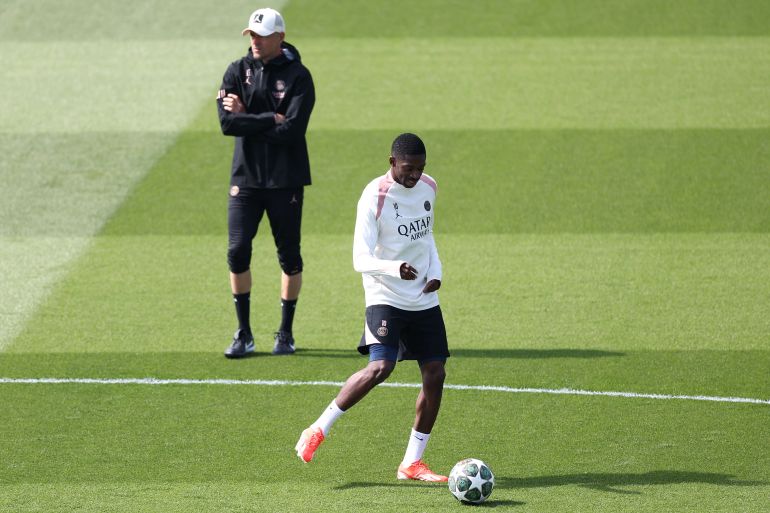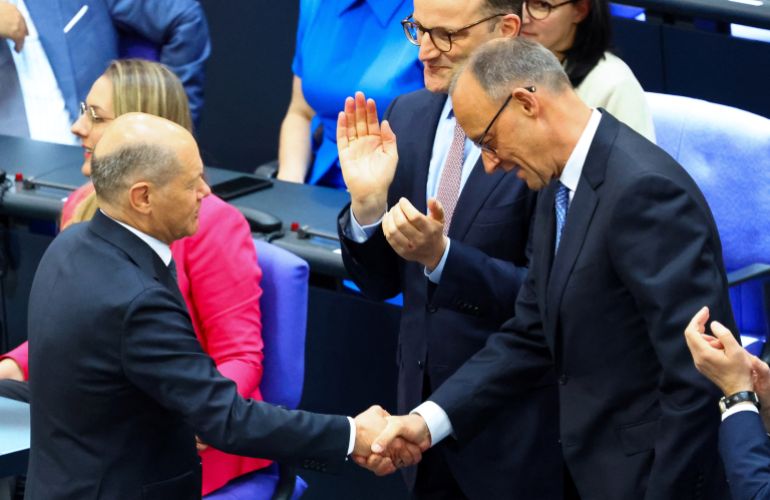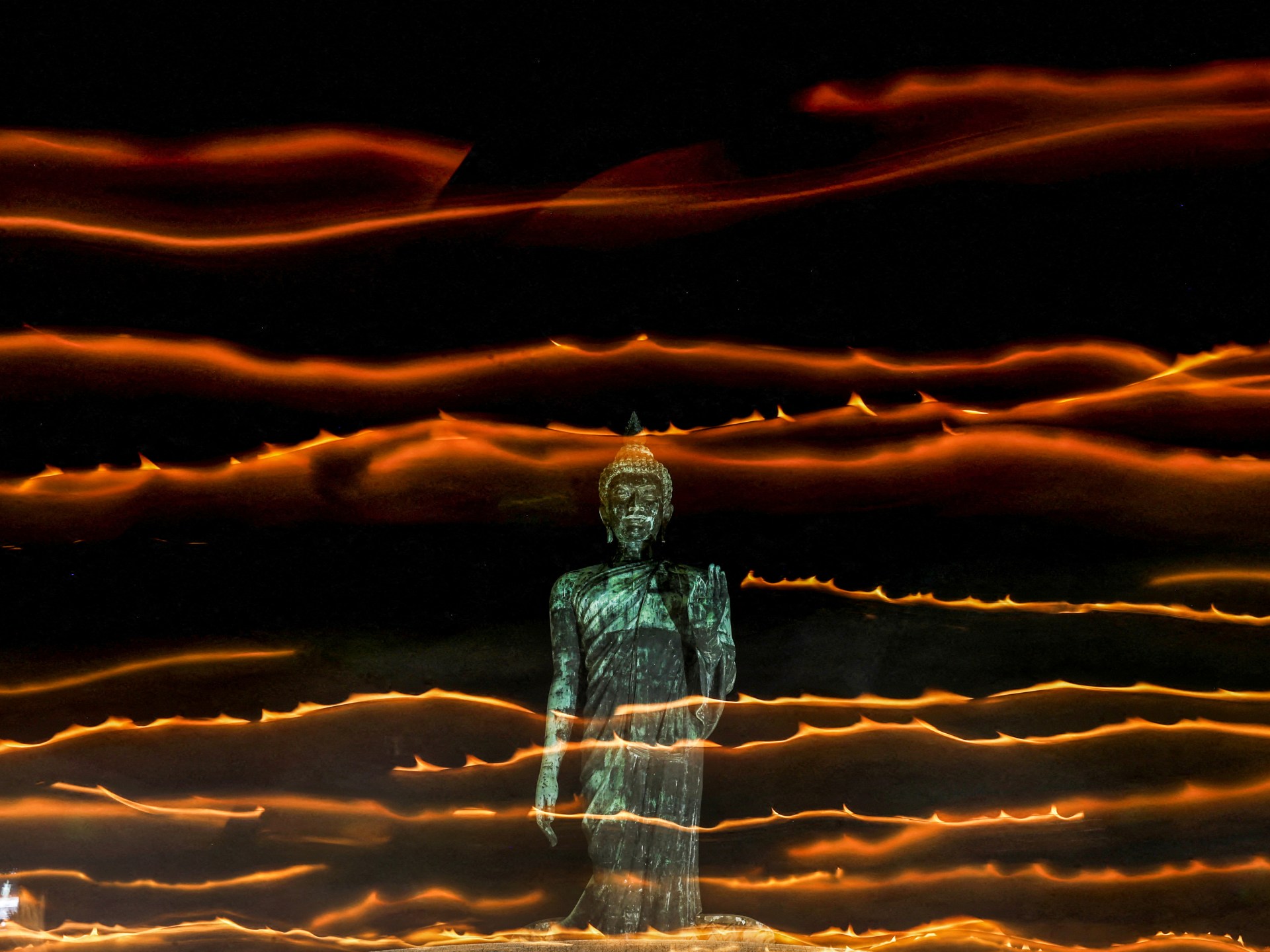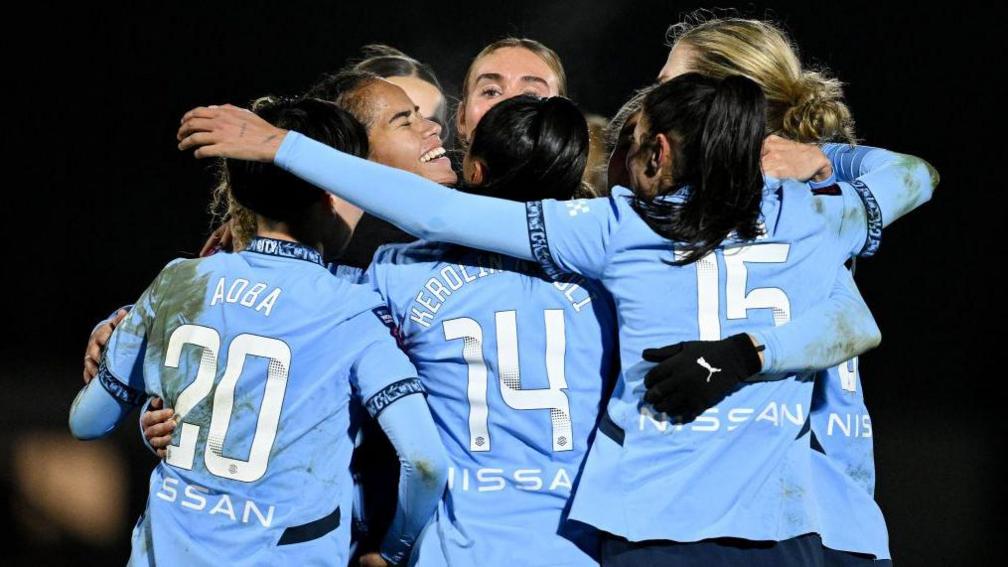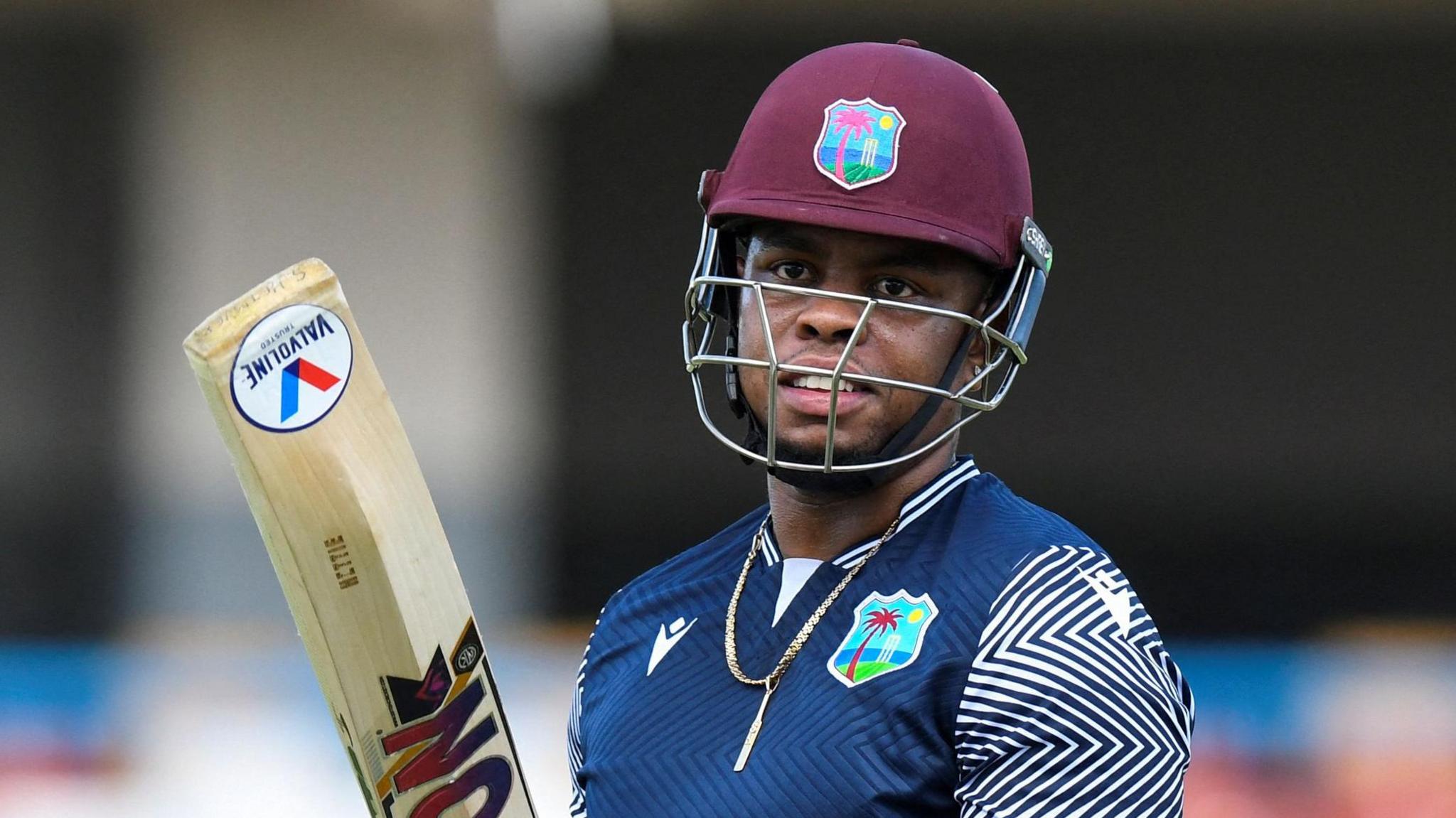Who: Paris Saint-Germain (PSG) vs Arsenal
What: UEFA Champions League semifinal, second leg
Where: Parc des Princes, Paris, France
When: Wednesday at 9pm (19:00 GMT)
Follow Al Jazeera Sport’s live text and photo commentary stream.
PSG and Arsenal continue their quest to win a maiden UEFA Champions League title when they clash in the second leg of their semifinal in Paris.
PSG’s away victory over the Gunners in the opening leg at Emirates Stadium on April 29 has the Parisians firming up as the favourites to progress to the final.
The Gunners face the daunting – but not impossible – task on Wednesday of needing to beat the French champions on the road if they want to reach the Champions League final for just the second time in their history.
Here is all to know before the semifinal decider between two of Europe’s most talented football clubs:
What happened in the opening leg?
PSG took a big step towards reaching the final when Ousmane Dembele’s early goal sealed a 1-0 win at Arsenal in a tense first leg of the semifinal.
Dembele fired home off the post in the fourth minute as PSG dominated the opening stages, and manager Luis Enrique’s side held firm to take a precious advantage back to the French capital.
When did Arsenal and PSG last reach a UEFA Champions League final?
Neither side have won Europe’s premier football competition, but both have lost a final.
PSG made their only final appearance in the 2019-2020 season, losing to German side Bayern Munich 1-0 at the Estadio da Luz in Lisbon, Portugal.
Arsenal’s participation in a UEFA Champions League final was 19 long years ago for Gunners fans, and they lost to Barcelona 2-1 in the 2005-2006 season at the Stade de France in Saint-Denis, France.
Team news: PSG
Star striker Dembele, who limped off with a minor hamstring strain after scoring the game winner against Arsenal in the first leg in London, has been passed fit to play in the return leg, Enrique said on Tuesday.
Dembele, 27, is PSG’s top scorer this season with 33 goals in all competitions.
PSG’s regular squad is otherwise injury-free with Desire Doue tipped to re-enter the attacking winger role at the expense of France international Bradley Barcola.
Team news: Arsenal
Key midfielder Thomas Partey returns to the side after sitting out the first leg against PSG with a suspension, restoring manager Mikel Arteta’s preferred midfield trio with Declan Rice and Martin Odegaard.
Jurrien Timber is questionable for this match as he continues to battle back to full fitness after a knee injury. But in some good news for the club, the Dutch defender was seen training with the Gunners squad on Tuesday shortly before they departed for France.
Sidelined stars Kai Havertz, Riccardo Calafiori and Jorginho are all likely to play before the end of the Premier League season, but none of them is in contention for Champions League selection unless Arsenal make it to the final at the end of May.
Gabriel, Gabriel Jesus and Takehiro Tomiyasu are all out until next season.

Possible lineups:
Arsenal possible XI: Raya; Timber, Saliba, Kiwior, Lewis-Skelly; Partey, Rice, Odegaard; Saka, Merino, Martinelli
PSG possible XI: Donnarumma; Hakimi, Marquinhos, Pacho, Nuno Mendes; Vitinha, Fabian Ruiz, Joao Neves; Kvaratskhelia, Dembele, Doue
Head-to-head:
The teams have played on six prior occasions across all competitions:
- Arsenal wins: 3
- PSG wins: 1
- Draws: 2
What the managers had to say:
Arsenal’s Arteta: “If you want to be in the Champions League final, you have to do something special. We’re going to have to do something special in Paris to be there.”
PSG’s Enrique: “We’re bound to suffer because our opponents don’t have a favourable result. We need to match our performance as closely as possible in the first leg to win the return leg and stay true to our ideas.”
When and where is the 2025 UEFA Champions League final?
The winner of this semifinal heads to Germany on May 31 for the Champions League final.
European football’s largest annual showpiece will be played at the 75,000-capacity Allianz Arena in Munich.

